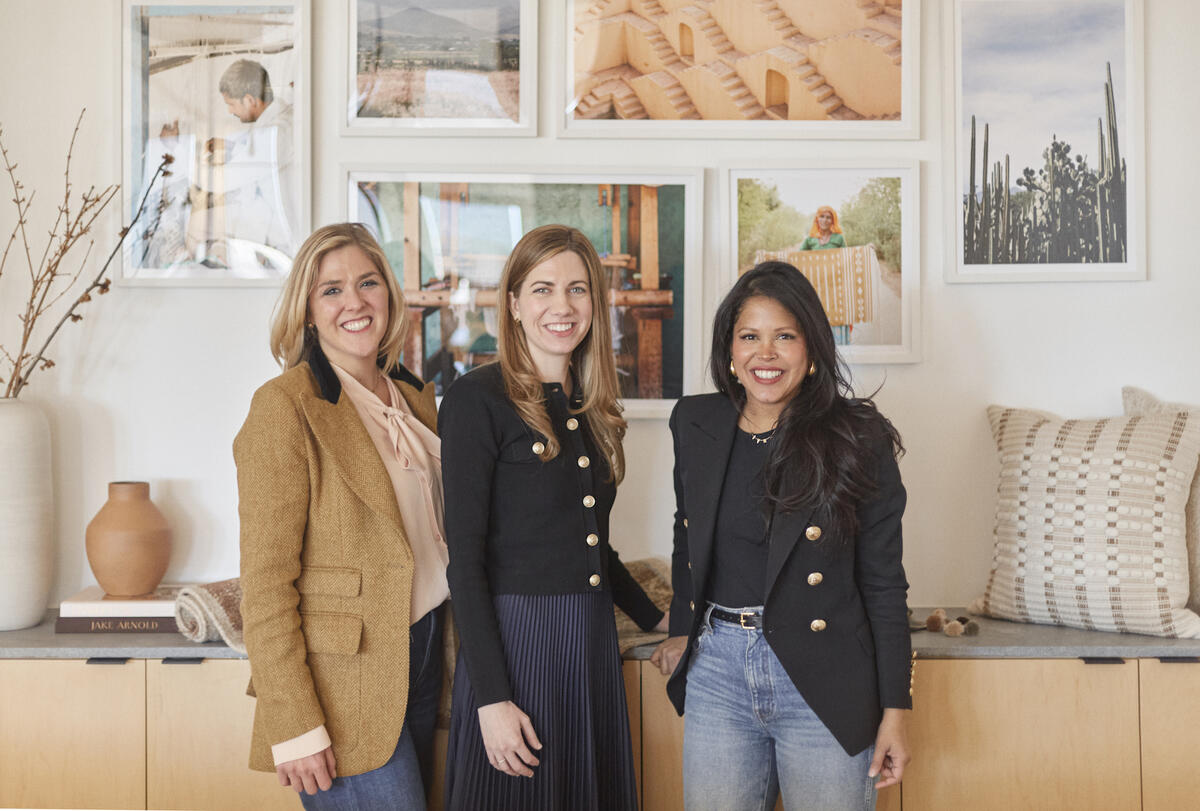E-design platform Havenly is adding to its fast-growing house of brands with the acquisition of home decor brand The Citizenry. The deal, announced today, sees the company join a portfolio that includes The Inside and Interior Define. The terms were not disclosed.
The Citizenry was founded in 2014 by Rachel Bentley and Carly Nance. The pair, friends since their college days, launched the company as a direct-to-consumer home brand that sourced from a global network of artisans. Over the past decade, the startup raised more than $20 million in venture funding and opened a New York flagship, while its selection grew to encompass everything from bedding and rugs to furniture and decor.
As part of the deal, Bentley will continue as president; Nance, whose most recent focus was brand planning and global marketing, will shift to an advisory role. The majority of The Citizenry’s 40-plus employees will remain on staff, and the company will keep its headquarters in Dallas.

Havenly founder and CEO Lee Mayer says the near-term goals for The Citizenry are to develop a more substantial trade program, invest in more retail locations and develop new product—all without changing too much of what got the brand to where it is.
“Last October, I flew down and met with [Bentley and Nance] and started talking with them about what the next step was for their business,” Mayer tells Business of Home. “I’ve been a fan of theirs for a long time—I have several of their pieces in my own home—so I’m personally really excited to bring the brand onto the platform. The core will very much be the same. We just hope to invest in the brand.”
The acquisition comes only a year after Mayer’s purchase of beleaguered DTC brand Interior Define. That deal—in which Havenly bought Interior Define’s intellectual property while the original legal entity went through a bankruptcy-like process—was complex and dramatic. Though Havenly was able to make good on the vast majority of outstanding orders, some customers never got a refund or a sofa.
Mayer says that Havenly has since metabolized the acquisition and that Interior Define has become a stable business. Intriguingly, some customers who were caught up in the chaos have returned as shoppers. “We learned that a product people like wins every time. If it’s distinguished in the market, it’s priced attractively, and it fits the customer need, people buy it,” says Mayer. “[We also learned that] authenticity goes a long way. [In communications with customers whose orders had gotten lost,] we were like, ‘We’re out here trying our best, and we’re trying to clean this up.’”
The Citizenry acquisition is far less dramatic. Though the company, like many home brands, has suffered in the post-pandemic boom period, it’s not an asset in distress. The goal of the purchase, Mayer explains, is partially to round out the categories that Havenly can compete in. With The Inside and Interior Define, it has upholstery covered. The Citizenry brings a deeper assortment of bedding, decor and rugs into the mix.
Then there are the strategic advantages inherent to rolling up multiple companies under one roof, including pricing power with vendors, reduced customer acquisition costs, cross marketing among owned brands, and back-end consolidation. With the constant stream of data coming from its e-design projects, says Mayer, Havenly is uniquely suited to take advantage of valuable insights across multiple businesses.
Behind all of the tactics lies an ambitious goal. When Mayer launched Havenly in 2014, the company, like many of its peers at the time, was pitched mainly as an e-design platform. In recent years—especially since the acquisition of The Inside in 2022—her approach has subtly shifted away from scaling a design services business and toward becoming a house of brands that cater to a target demographic.
“We have a very specific customer: millennial and younger, digital-first, what I call ‘mass affluent,’” says Mayer. “We’re not looking at super premium brands. We’re also not looking for super cheap brands. We’re asking, ‘Who are the brands that really resonate with our customer? How can we really serve the rising generation of home consumers?’”
That means there may well be more acquisitions on the horizon. In today’s economic climate, with many home brands still suffering from a post-boom hangover, there will likely be plenty of offers on the table. “There’s the Warren Buffett adage: ‘Be greedy when others are fearful,’” says Mayer. “I think it’s a once-in-a-generation buyer’s market.”





























